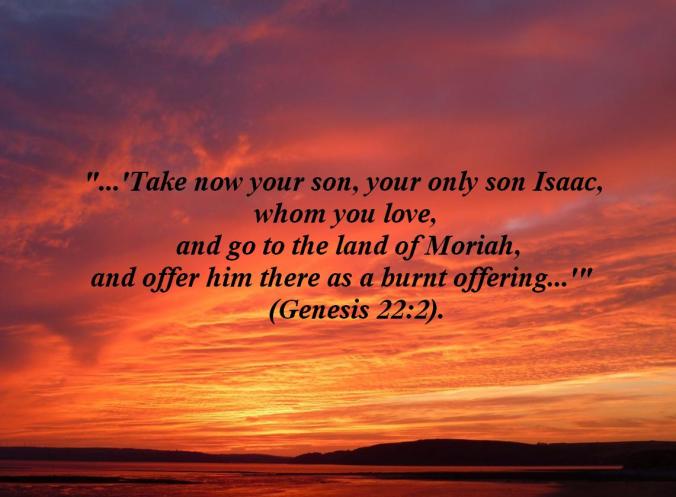“Go therefore and make disciples of all the nations…teaching them to observe all that I commanded you; and lo, I am with you always, even to the end of the age” (Matthew 28:19-20, NASB).
——————–
Contents:
1) The Christian’s GPS Guide (Steve Locklair)
——————–

-1-
The Christian’s GPS Guide
Steve Locklair
Most people are familiar with the GPS, a global navigation satellite system developed by the Department of Defense which transmits precise signals allowing receivers to calculate and display accurate location, speed, and time information to the user. These global positioning systems work in most weather conditions, day or night, 24 hours a day, around the globe, and we can use them to help us get to our destinations. You simply put in your destination address, and it will tell you turn by turn directions for the roads you need to travel to get you there. Some models will even alert you to traffic and construction delays that you might encounter and will allow you to avoid them. Using the acronym GPS, let us consider a few comparisons between this man-made GPS and God, and how we should use our spiritual GPS. First, we should recognize God’s Powerful Sight. God is like the man-made GPS in that He knows exactly where you are at and where you are going, both physically and spiritually, just as he did with Adam and Eve (Genesis 3:9-13, 17ff). But while the man-made GPS makes mistakes and is dependent on the accuracy of the installed map, God is infallible, inerrant, and eternal, which all men should realize or they are without excuse (Romans 1:20; Proverbs 15:3). God has given us an inspired, infallible, and inerrant word to correct us when we are wrong and instruct us in doing what is right in His sight so that we will have the wisdom to get to our eternal destination through Christ (2 Timothy 3:14-17; John 14:1-6). Are you doing what is right in your own eyes or the eyes of the Lord (Judges 17:6; 21:25)?
In addition, we should follow God’s Powerful Standard. Just as the GPS has to make choices as to which road to go on, we also make decisions as to our eternal destination. God has created us in His image without sin when we are born, but at some point in our youth we choose to sin (Ezekiel 18:20; Jeremiah 3:25; James 1:13-16; Romans 3:23; 1 John 3:4). When we make choices based upon our feelings without divine revelation, the GPS tells us that it will eventually lead to eternal condemnation (Proverbs 14: 12; Revelation 21:8). We cannot guide our own footsteps in righteousness (Jeremiah 10:23). Thankfully, through the power of His blood and resurrection from the dead, we can be born again to a living hope through the reliable standard of the Scriptures (John 11: 25-26; 1 Peter 1:3-5, 19, 22- 25). If you are not on the right road that leads to heaven (through God’s Powerful Standard), you will not escape the righteous judgment of God (Hebrews 4:12-13).
We must also avoid the Great Prowling Schemer (Satan). Realizing God’s Powerful Sight and following God’s Powerful Standard will put us on the right road, but through our journey, we will encounter many traffic snares, construction delays, and road blocks that we must detour around or persevere through. We also can be honestly and sincerely thinking we’re going the right way but still be wrong. An example of this is following a man-made GPS and taking the wrong turn. Satan disguises himself as an angel of light and uses those who appear to be righteous in order to deceive others (2 Corinthians 11:14-15).
Even though he appears innocent, we must not let our guard down, because the Bible describes Satan as a roaring lion seeking to devour souls (1 Peter 5:8). Satan is always scheming in order to get people to curse God and disobey Him (Job 1:11). But how does he get people to do that?
Satan can use families.
Satan took away everything Job had but allowed his wife to live so that she would do Satan’s bidding when she told Job to “curse God and die” (Job 2:9). What if your loved one told you to quit serving God when you were suffering through trials? Would you do it? Job overcame the great prowling schemer and did not curse God (Job 1:22; 2:10). You must love Jesus more than any other family member and not give in when they tell you to sin; discourage you from doing what is right; or become your enemy; otherwise you are not worthy of Him (Matthew 10:34ff; Luke 6:46). Will you put on the whole armor of God so that you will be able to stand firm and overcome the schemes of Satan (Ephesians 6:10ff)?
Satan can use friendships.
The Bible warns about bad company corrupting good morals (1 Corinthians 15:33). But in an attempt to be popular, or get along with others in order to avoid persecution, many will decide to hang out with the wrong crowd. If you do this and continue to be their friends, ultimately, you will think, talk, dress and act like them. But if you delight in God’s word, you will overcome the GPS (Satan) by saying no to their enticements to sin (Psalms 1:1ff; Proverbs 1:10ff). Even if you have faithful friends, Satan can use them to lead you astray. They may judge you by appearance, traditions, or assumptions (Job 4:8; 8:8; 11:5-6; 19:14; 32:3; 42:7). Will you say no when your friends entice you to sin or will you give in to the great prowling schemer?
Satan can use ministers.
Satan disguises himself as a minister of righteousness so that he can deceive people into believing a lie. “No wonder, for even Satan disguises himself as an angel of light. Therefore it is not surprising if his servants also disguise themselves as servants of righteousness, whose end will be according to their deeds” (2 Corinthians 11:14-15). Satan can use his ministers to tell people… that “all roads lead to heaven”; “just accept Christ as your personal Savior and you will be saved”; “once you’re saved, you’re always saved”; “it doesn’t matter what you believe as long as you are honest and sincere”; etc. We must not think of any man above that which is written (1 Corinthians 4:6), and we must test the spirits to see whether they are from God (1 John 4:1) so that we will not fall victim to the deceptions of the Great Prowling Schemer.
Finally, we must obey God’s Plan of Salvation. With the man-made GPS, the mileage will change as you get closer to your destination. Even though there are different answers along the way, it is still accurate (unless it has malfunctioned). It is the same way concerning God’s plan of salvation. In the book of Acts, different answers are given to people depending on where they are at spiritually. They are not told everything they need to do at one time. Remember that the sum of God’s word is truth (Psalms 119:160).
An unbeliever should examine the facts of the gospel so that he might believe that Jesus Christ is the Son of God or he will die in his sins (John 20:30-31; 8:24). The only way anyone can have faith is by hearing God’s Powerful Standard (Romans 10:17), not by a vision, miracle, feeling, or strong conviction.
A person who believes that Jesus Christ is the Son of God must have the conviction to obey everything Jesus commanded (Matthew 28:19-20; John 14:15; Hebrews 5:8). A person who does not obey God’s plan of salvation will be punished forever in torment (2 Thessalonians 1:7ff).
The Ethiopian eunuch heard preaching about Jesus and asked what hindered him from being baptized. He was told if he believed with all his heart he could. Then he said, “I believe that Jesus Christ is the Son of God” (Acts 8:37). This was in accordance with Jesus’ command to believe and be baptized in order to be saved (Mark 16:15-16).
Those who were pricked in their heart that Jesus is Christ and Lord on the Day of Pentecost were told to repent and be baptized. Why? So that they could have the forgiveness of sins (Acts 2:38). A penitent believer was told to “arise and be baptized and wash away your sins, calling on the name of the Lord” (Acts 22:16). Why was he baptized? So that his sins would be washed away. Then a Christian is told to learn to obey everything Jesus commanded and grow in the grace and knowledge of His will (Matthew 28:20; 2 Peter 3:18).
In conclusion, you will need to use your spiritual GPS (God’s Powerful Standard) everyday of your life so that you will be able to overcome the Great Prowling Schemer and obey God’s Plan of Salvation so that you can eventually go to heaven. Satan is trying to deceive people into believing that the way to heaven is broad and easy and many will go there. Do not be deceived! God’s Powerful Standard is narrow, difficult, and few will actually go to heaven. “Enter by the narrow gate; for wide is the gate and broad is the way that leads to destruction, and there are many who go in by it. Because narrow is the gate and difficult is the way which leads to life, and there are few who find it” (Matthew 7:13-14).
— Via The Watchman Magazine, January 26, 2010
——————–
The Steps That Lead to Eternal Salvation
1) Hear the gospel, for that is how faith comes (Rom. 10:17; John 20:30,31).
2) Believe in the deity of Christ (John 8:24; John 3:18).
3) Repent of sins (Luke 13:5; Acts 17:30).
4) Confess faith in Christ (Rom. 10:9,10; Acts 8:36-38).
5) Be baptized in water for the remission of sins (Mark 16:16; Acts 2:38; 22:16; Rom. 6:3,4; Gal. 3:26,27; 1 Pet. 3:21).
6) Continue in the faith; for, if not, salvation can be lost (Heb. 10:36-39; Rev. 2:10; 2 Pet. 2:20-22).
——————–
Tebeau Street
CHURCH OF CHRIST
1402 Tebeau Street, Waycross, GA 31501
Sunday services: 9:00 AM (Bible class); 10 AM & 5 PM (worship)
Wednesday: 7 PM (Bible class)
evangelist/editor: Tom Edwards (912) 281-9917
Tom@ThomasTEdwards.com
http://ThomasTEdwards.com/audioser.html (audio sermons)












